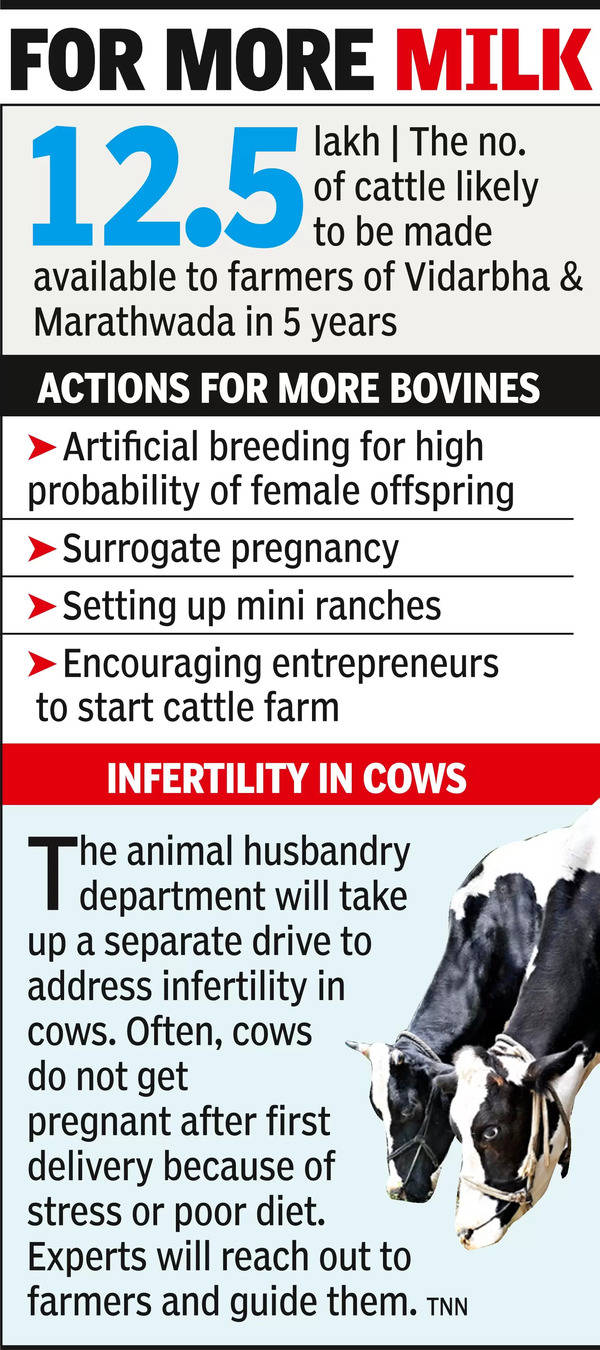
A proposal to make available 12.5 lakh cattle for farmers of the two regions in five years may soon be put up before the state cabinet. It means that in one year, more than 2 lakh cattle will be distributed to farmers.The animal husbandry department too has drawn plans to multiply thebovine population.

Methods would include artificial breeding through sex-sorted semen to increase probability of female offspring, surrogate pregnancy of cattle, encouraging mini ranches through central subsidy among others.
“The dairy industry can thrive only if the output is scaled up. With a large number of animals getting inducted, an entire ecosystem of dairies, food processing, fodder and related industries can come up,” a source told TOI.
Union minister Nitin Gadkari also spoke about the plan during the closing ceremony of Agrovision, a farmers’ expo patronized by him. “The state does not have as many number of cattle. Like goat farms, entrepreneurs can now set up cattle farms too,” said Gadkari. The plan also coincided with the ground-breaking ceremony of Mother Dairy’s new plant during Agrovision.
“We need to increase the number of high yielding cattle in less time. Apart from artificial insemination, embryo transplant will be employed, which is like surrogate motherhood in humans. The embryo generated out of the egg and sperm of a high-yielding variety will be transplanted to the womb of another cow. This way, good breeds can be generated in quick succession,” said a source.
The embryo of a good Indian breed can be planted in the womb of a Jersey or the Holstein cow, and also the other way round. All breeds will be encouraged including buffaloes. “We will tie-up with Centre’s Rashtriya Gokul Mission for supply of animals,” the source.
The state will also encourage entrepreneurs to start cattle farms under the Centre’s breed multiplication programme. Under this programme, 50% subsidy up to Rs 2 crore is available for setting up a farm with 200 cows. These farms can be centres from where cattle needed for the programme will be bred through modern techniques. Similar efforts will also be made in farms of Maharashtra State Livestock Board which has 8 facilities in the state, including 3 in Vidarbha.
Cattle will also be purchased from other states by floating tenders. The idea is to develop dairy farming on a larger scale in villages instead of giving away a single or two milch animal to farmers.



